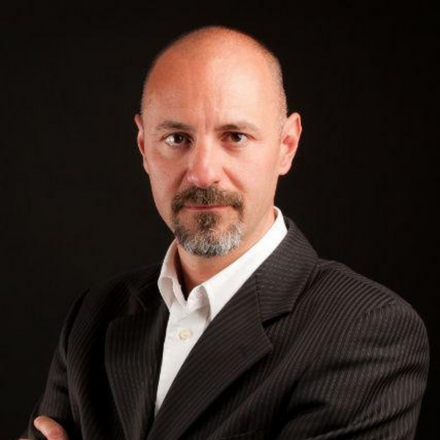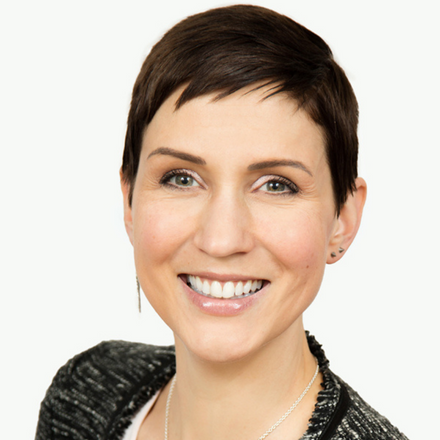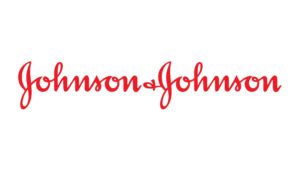This website uses cookies so that we can provide you with the best user experience possible. Cookie information is stored in your browser and performs functions such as recognising you when you return to our website and helping our team to understand which sections of the website you find most interesting and useful.
Reconfiguring and leading the value-based hospital
11-12 December 2019 - Brussels, Belgium
Overview
Hospital sectors in the industrialised world are facing tremendous changes and pressures. Internal and external challenges, such as changes in demography, new technology, innovation in clinical practice, relationships with trade unions and new lobbying groups, make managing hospitals extraordinarily complex and demanding task.
These pressures are leading to hospital re-organisations, which fall in three broad categories:
- Bridging concerns inter-organisational integrations. We refer to vertical and horizontal integration leading to integrated delivery systems, multi-hospital networks based on alliances or other informal agreements of cooperation, multi-hospital groups based on mutually desired mergers or on hostile takeovers, multi-site hospitals based on consolidations institutionally enforced by health authorities. Further, clinical networks are emerging as the way to improve clinical governance among physicians and units belonging to the same network, as well as to create patterns for concentrating complex cases requiring a certain critical mass. All this is generating the need for new organisational design.
- Re-designing regards the development of new design for the internal organisation of the hospital, along principles of “patient-centred” care, valued-based healthcare and clinical service lines built around multi-professional and multispecialty teams. Further, new challenges and opportunities are generated by new models for the delivery of healthcare (remote care, concierge medicine, retailisation, etc.) and by skill mix and operations management.
- Engaging concerns the policies and actions that can enhance the engagement of clinicians in doctor-managers roles. Engagement that is even more fundamental for the success of devolved responsibility models, where managerial autonomy must be aligned with organisational interests – such in the case of hospitals organised in clinical directorates or departments. Further, recent studies have highlighted the importance of management and clinical leaders in the healthcare sector, as positive correlations have been found between clinical and economic performance. Therefore, is key for the future of hospitals addressing the issues of reluctant leadership and custodial strategy that plague the effective engagement of clinicians in their much-needed hybrid roles
All these changes taking places in hospitals are driven by new paradigms such as value-based hospital care, the “focused hospital”, patient-flow logistics, clinical service lines design. The programme will tackle these changes and provide specific solutions and frameworks that can be actionable. The key deliverable for participants is to provide them both with food-for-thought for lateral thinking and new envisioning on one side, and a to do list of actions that the day after can be pursued in their own context.
Who should attend?
The Executive Workshop is targeted at multiple professional profiles wherein the common denominator is the search for competencies, skills and managerial tools to understand and personally manage, coordinate or lead hospitals and their departments, units, services, etc. The workshop has been designed for all protagonists of the management and transformation of modern hospitals. Expected participants are:
- Chief Executive Officers, Chief Medical Directors, Chief Operating Officers, Chief Nursing Manager and Administrators that want to acquire new visions and solutions or discuss their practices on hospital possible reconfigurations according to value-based, patient-focused and patient-centered paradigms.
- Clinical leaders working in secondary and tertiary care hospitals who already lead clinical directorates or hospital divisions, departments, centers and units.
- Clinicians that aspire to move in leading roles.
- Nursing managers of all levels of hospital structure: divisions, directorates, centers, units, clinical service lines; and seniors nurses that are about or aspire to move to the next level leading roles.
- Managerial and administrative staff aspiring to lead functional units of hospitals.
- Experienced healthcare managers aspiring to «C» level positions (Chief Executive, Chief Operating Officers, Chief Medical Director, Chief nursing manager, Chief administrators)
The common denominator among participants is the interest in framing the changes hospitals are undergoing, and developing competencies and skills to lead the management of their structure (hospital, divisions, departments, units, clinical service lines, etc.). Multiple participants from the same hospital are welcome, as the workshop could be the opportunity to generate a shared unfreezing and that “meeting of minds” finalised at enhancing changes in their context.
TRAINERS

Prof. Federico Lega, Ph.D
Prof. Federico Lega, Ph.D
Prof. Federico Lega, Ph.D, is Full Professor of Health Administration at the Public Health Department at Milan University, where he runs all courses in healthcare management and policy for medical students and leads the Research Center in Health Administration (HEAD).
Further, he is Professor at SDA Bocconi School of Management, where he is the Director of the Master International in Healthcare Management Economics and Policy (MIHMEP) and teaches courses in Public Management and Health Services Management. He leads the research in strategy and organisational development in healthcare at Bocconi Research Center on Health Policy and Management (CERGAS). From 2007 to 2014 he has been head of executive education for health managers, clinicians and medical industry leaders at Bocconi School of Management (SDA).
Since 2005 he was appointed Adjunct Professor of the Department of Health Services Administration at the University of Alabama, USA, and has been visiting scholar at INSEAD and HSMC at Birmingham University, UK.
His research interests focus on health policies, institutional change, organisation and management of healthcare institutions, on modernisation and innovation processes in health services delivery, on recent development in strategy and competitive positioning of pharma and medical technology industry.
As consultant he has advised health systems on health policy matters and governance issues, several hospitals and networks in re-organisations, strategy-making processes, value-based approaches, economic evaluations and process management, both at national and international level.
In the last ten years he has advised several companies of the medical industry on their transformation toward value-based models and for the development of effective market-access initiatives. Since 2002 he has coordinated over fifteen initiatives of duality or study-tour, involving the exchange of managers and senior clinicians between countries (Italy, UK, USA, Germany and France).
He currently seats in the boards of hospitals and local health authorities, advises health departments of Regions, national health agencies and insurances, and worked as consultant for WHO.
He is President of the European Healthcare Management Association (EHMA), and Chair of its Scientific Advisory Committee. Since 2015 is acting as Editor in Chief of the Journal Health Services Management Research, Associate Editor of BMC health services research and Medical Care Research Review. He has published eight books and over 150 articles on journals.

D.Sc. (Econ.) Ira Haavisto
D.Sc. (Econ.) Ira Haavisto
D.Sc. (Econ.) Ira Haavisto has an extensive academic background. She has worked in international research projects for the last ten years, the last two years at Nordic Healthcare Group, for example in the EU-wide research project BOUNCE. Her doctoral dissertation focused on supply chain management and social responsibility, and she has worked as the director of The Humanitarian Logistics and Supply Chain Research Institute (HUMLOG Institute) at Hanken School of Economics. She has several peer-reviewed publications on performance management and innovations in non-profit organisations, and has during the last couple of years, dedicated herself to research within the healthcare sector.
She has a wide experience of lecturing and facilitation. She has run over 10 executive education training courses, and been the examiner of more than 20 bachelor and master level courses in the field of business studies.

M.Sc. (Tech.) Tomi Malmström
M.Sc. (Tech.) Tomi Malmström
M.Sc. (Tech.) Tomi Malmström currently works as business director at Nordic Healthcare Group and is responsible for analytics services, including benchmarking.
Malmström has previously worked as a research director at The Institute of Healthcare Engineering, Management and Architecture (the HEMA Institute) at Aalto University.
He has over ten years of experience of research projects and consulting within healthcare and is currently putting the final touches to his doctoral dissertation. He has published several peer-reviewed publications within the field of healthcare operations management.

M.Sc. (Econ.), B.Sc. (Med.) Laura Pitkänen
M.Sc. (Econ.), B.Sc. (Med.) Laura Pitkänen
M.Sc. (Econ.), B.Sc. (Med.) Laura Pitkänen has twelve years of experience within the healthcare sector, both from the point of view of a management consultant and from inside private service providers. She is currently responsible for outcomes measurement at NHG. In addition to working at NHG, she has worked for private healthcare service providers, pharma, and HEMA Institute. She is currently beginning working on a doctoral dissertation at Aalto University.
Detailed Programme
Wednesday, 11 December 2019
09.00 – 12.30 – Toward patient-centric hospitals: internal design and process-based management for hospital services. How you can build a value-based hospital.
12.30 – 13.30 – Lunch break
13.30 – 17.00 – How to get started: implementing value-based strategy, objectives and metrics. Segmenting patients, setting objectives, and ensuring their alignment within the organisation. Choosing outcome metrics, and implementing international standards of measuring. Setting incentives. Ensuring continuity. Case examples from the Nordics.
17.30 – 19.00 – Networking reception
Thursday, 12 December 2019
09.00 – 12.30 – Patient flow logistics and operations management: how data, brutal facts and new rules and roles are changing the game of hospital. What is it and who can fill the shoes of new roles: bed manager, flow manager, patient experience manager…
12.30 – 13.30 – Lunch break
13.30 – 17.00 – Maybe I will, maybe I won’t. How to make it happen. Managing and surviving change management issues. Why leaders make the difference? Which leaders? Leadership practices and styles applied to professional contexts and hospital governance structures
fees
The Executive Workshop fees are:
- For EHMA members: 750 Euro* per person (VAT excluded)
- For non-EHMA Members: 900 Euro* per person (VAT excluded)
* Discount: a 10% discount will be granted to groups composed of 5 people or more coming from the same organisation. To make a group reservation, please contact adrianna.trojak@ehma.org
The fees include
- Study material and training program
- Meeting space, coffee breaks and lunches
- Networking reception
Registration
The Executive Workshop has a closed attendance of 30 participants. Registrations will be processed on a first-come first-served basis.
We are not accepting registrations for this event.
EHMA reserves the right to cancel the Executive Workshop and inform the participants of its cancellation by Monday, 18 November 2019. Should the Executive Workshop be cancelled, the paid participation fee will be reimbursed in full. However, EHMA will not reimburse any travel and accommodation arrangements made by the participants. At any time, participants may transfer their bookings to another participant upon written notice to adrianna.trojak@ehma.org Participants have the right to cancel their bookings at any time. If the cancellation is received by Monday, 11 November 2019 (included), your payment will be refunded less an administrative fee of 150 EUR. If your cancellation is received after Monday, 11 November 2019, there will be no entitlement to any refund. To exercise the right to cancel, you must inform us of your decision via email at adrianna.trojak@ehma.org
NOTE – The Executive Workshop has been submitted for review under the MedTech Conference Vetting System (CVS). Following the MedTech assessment, the Executive Workshop has been determined: COMPLIANT.


The Executive Workshop is co-organised with the Nordic Healthcare Group (NHG) and financially supported by Johnson & Johnson.
What our Members say
I have been active in EHMA since the first years of the '90s and I have seen its evolution from a small association of members interested in sharing knowledge on health management practices to the current status of reference and advisory key player for EU, health systems and organisations, stakeholders associations, industry and universities. EHMA is now a unique knowledge hub, policy advisor, community of practice and network of best in class organisations involved in health policy and management. A place where health managers can build their competences, policy-makers and stakeholder associations envision how to implement and sustain change through health management, industry leaders understand how to engage more effectively with health organisations and systems. The right place to nurture and grow health management capabilities and capacity for every stakeholder of health systems.
Prof. Federico Lega, University of Milan, Italy
Health management has a crucial function in shaping public health and health system challenges. The Medical University of Varna, Bulgaria had success in collaborating with EHMA on EU-funded projects that has resourced us to create new health management competencies for the future workforce. In addition to all classical definitions, health management is a science dealing with individuals, groups, and society at large. It is an art contributing to the beauty of our lives and an interactive communication process at all levels of institutions and human energy. I have also had the pleasure to chair the South Eastern European Special Interest Group which gives members a space to discuss and tools to address how health systems are managed in our regions.
Prof. Todorka Kostadinova, Medical University of Varna, Bulgaria
I enjoy the high level of interaction and engagement in EHMA’s activities, in particular during the annual conference where the panel discussions are rich and well prepared. As a hospital manager and professor of health management, EHMA motivates and inspires me to be creative. You go back home feeling energised from seeing old friends and making new connections, as well as being convinced of serving as EHMA’s ambassador. It’s a strong feeling of interdisciplinary engagement, but it also feels like being part of family-like community.
Prof. Sandra C. Buttigieg, University of Malta, Malta
EHMA is a pre-eminent organisation for everyone working in planning, managing and delivering health services across Europe. As a long standing member of EHMA I have always been impressed by the vibrant community of managers, researchers and academics it has created and by the many opportunities for sharing knowledge and funding opportunities it has brought to its members. Its international scope is impressive and its impact is often felt in management and research across European and national health systems.
Prof. Axel Kaehne, Edge Hill University, UK
Health workforce has become more essential in operating, managing and maintaining health systems lately, particularly in crisis and emergency situations. European healthcare professions and the workforce need to be high on the agenda of managers and decision makers. The Health Services Management Training Centre, Semmelweis University in Hungary is a longstanding EHMA member, because it connects us with collaborators and experts, with whom we can have complex debates, from whom we can learn and at the end find solutions in various challenging fields of healthcare management.
Dr Eszter Kovács, Health Services Management Training Centre, Semmelweis University, Hungary
As a hospital administrator and health management professor, I see on a daily basis that the healthcare challenges require talented and skilled managers to transform it. the EHMA membership has been beneficial to bring healthcare management research and education to the demanding healthcare services world, promoting healthcare management competencies and knowledge creation.
Dr Alexandre Lourenco, APAH - Association of Portuguese Hospital Managers, Portugal
Many healthcare systems in Europe and beyond are facing similar challenges which require innovative and creative solutions. EHMA’s annual conference, webinars, Programme Directors’ group and other activities and resources provide incredible opportunities for networking, connecting and sharing experiences. A distinct feature of EHMA is the diversity of members with representation from many countries, sectors and different communities of practice – academic, policy-makers, practitioners, managers, leaders and students. The annual conference is a highlight in the calendar year, offering a friendly, fun and learningful environment for emerging and established members to engage, collaborate and meet up with old and new friends. I am proud to be a member of the EHMA Board.
Prof. Ann Mahon, University of Manchester, UK
Society evolution, pandemics and ageing modify health needs. So, health policies and services are to change dramatically. EHMA, through webinars, workshops and annual conference provides an excellent insight to a professional changing world, favouring closeness to management innovation and the protagonists of these changes. As a primary care services’ manager, participating in EHMA activities is really worth it and allows to involve oneself in the innovation processes.
Dr Antoni Peris Grao, Consorci Castelldefels Agents de Salut (CASAP), Spain